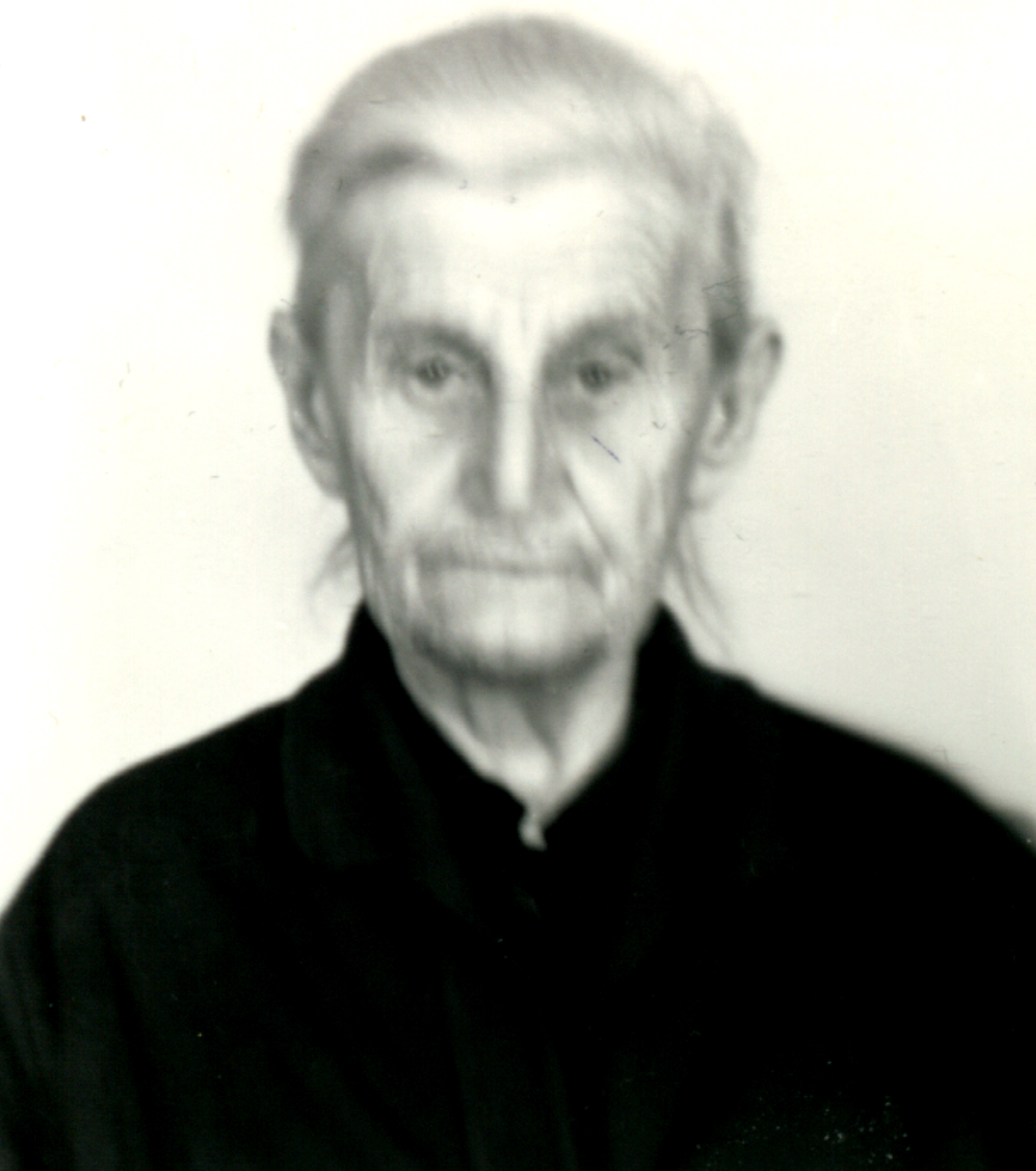Esiah Kleiman's mother Golda Kleiman
This is a picture of my mother, Golda Kleiman, photographed for her passport. The photo was taken in Chernovtsy in 1973.
My parents got married in 1930. They had a traditional Jewish wedding with a chuppah in my mother's house in Chinisheutsi. My parents lived in my father's home in Vad-Rashkov in the beginning. My father was a very intelligent and smart man. At 30 he had a house and owned a grocery store, which was located in his house. We lived there before the war. I guess the store was quite profitable since we were a wealthy family.
My parents were moderately religious. They wore worldly clothes. My mother and father liked fashionable clothes. My father never wore anything specifically traditional Jewish. My mother always had her hair neatly done. She didn't wear a wig; she only wore a shawl or a kerchief when she went to the synagogue. My father was more religious than my mother. On holidays they went to the synagogue together and on Saturdays my father went alone. He took me with him when I grew older.
After World War II our family moved to Chernovtsy. My father didn't work anymore then; he was a pensioner. We celebrated all Jewish holidays but my father didn't make a sukkah in the yard of our crowded house. On Purim my mother made hamantashen and sent shelakhmones to our relatives and acquaintances. My parents fasted on Rosh Hashanah and Yom Kippur and celebrated Pesach.
There were at least five synagogues in Chernovtsy before 1948 [when the campaign against ?cosmopolitans? began]. Matzah was sold in bakeries and synagogues before 1948, but then the Jewish school and theater were closed. There was only one synagogue left, and it became difficult to get matzah. I remember that there was an underground bakery. If the Soviet authorities had found it, they would have closed it for sure. My parents picked up matzah at night as well. We always had matzah on Pesach and ate no bread. My mother was ill in the last years of her life and couldn't eat matzah - she had mamaliga instead.
My mother died in 1983. Since I had worked at school for a long time my colleagues were supposed to come to the funeral. It wasn't safe to have a traditional religious funeral with teachers involved because they were responsible for the education of the young generation. There were no colleagues and pupils of ours at my father's funeral, but they came to my mother's funeral. A religious teacher would have lost his job in an instant. The funeral was to be in the afternoon, and we had a religious ritual completed in the morning. We buried her without a prayer, but in a shroud as required, in the Jewish cemetery beside my father's grave.
